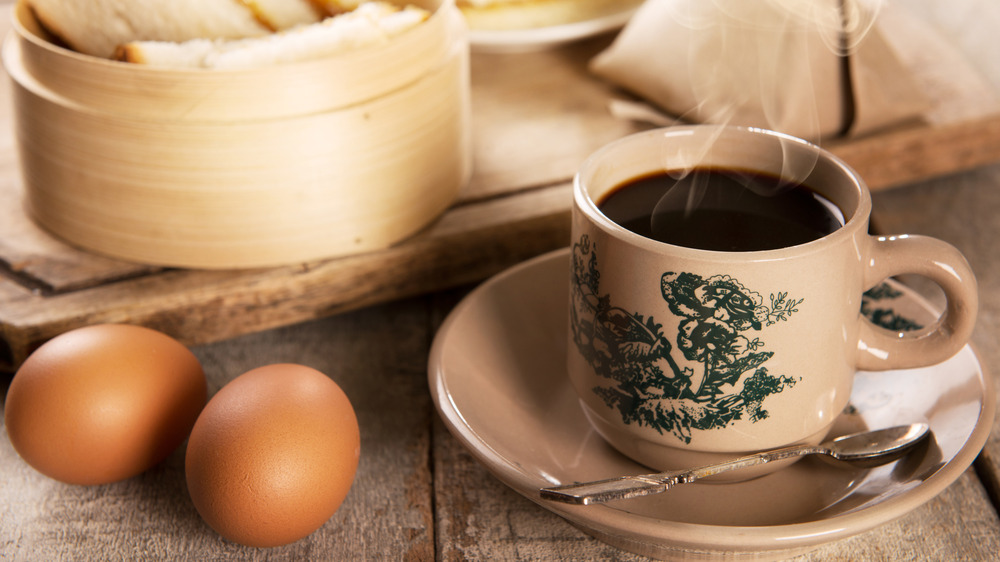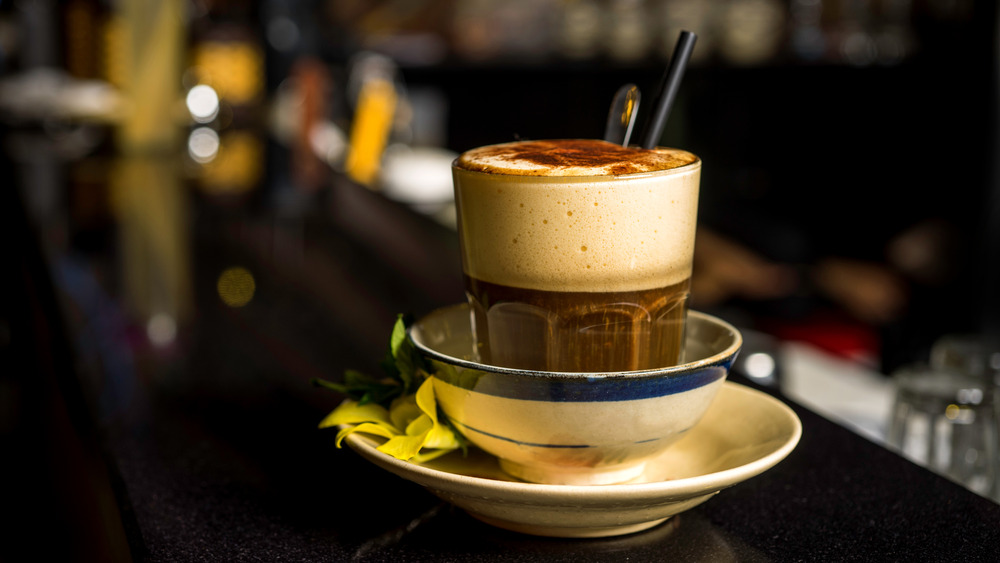The Truth About Egg Coffee
There's no question coffee and eggs are quintessential breakfast fare. Emphasis on "essential." Starting the day with a steaming cup of joe nestled alongside perfectly cooked eggs is about as comforting and classic as it gets. But what if we told you the egg was served in the coffee?
Seems there are two varieties of egg coffee, Swedish and Vietnamese. In the Swedish version (also called Scandinavian coffee), a cracked egg (shell included) is mixed with coffee grounds and boiled in water for five minutes (via I Need Coffee). What's the purpose of the egg? The Spruce Eats states that the egg helps separate the coffee grounds from the water, elevates the caffeine level, and extracts bitterness and acidity, creating a creamy drink with a satiny finish.
Taste of Home explains that as the egg coagulates, it pulls impurities from the coffee grounds, compounds that cause the coffee to taste pungent or burnt. Craft Coffee Guru adds that eggs "remove the tannins from the coffee," creating a drink with more clarity. While the history of Swedish egg coffee is unclear, legend states that the beverage evolved when immigrants from Sweden made their way to America in the 1800s. Now head over to Vietnam and you'll find a completely different version of egg coffee.
Eggs are used in different forms to create smooth, creamy coffee
According to Ethnic Spoon, Vietnamese egg coffee is strong French roast coffee festooned with a foamy blend of egg yolks and sweetened condensed milk. Interestingly, the concoction wasn't crafted for its richness, but born out of necessity. Atlas Obscura explains that egg coffee was invented in Hanoi in 1946, during the French War. At that time, a milk shortage made it impossible to create what Hanoi coffee drinkers cherished most – robust coffee with a generous amount of sweetened milk. In an effort to create a similar beverage, bartender Nguyen Van Giang of the Sofitel Hotel whisked egg into the coffee instead. The coffee was such a profound success, Giang opened his own café where his son still serves the signature brew.
Are egg coffees safe to drink? Regarding Swedish egg coffee, certified food safety professional Janilyn Hutchings explained to HuffPost that the egg may contain salmonella, especially if only "lightly cooked." She asserted that the water used for coffee brewing typically doesn't reach the boiling point, the temperature needed to kill bacteria. While some studies show that coffee grounds may have antibacterial properties, Hutchings suggested using fresh pasteurized eggs to ensure safety. Note that many recipes, including one from Food.com, suggest boiling the egg-coffee mixture for at least three minutes.
For the Vietnamese version, Instructables states that only yolks are used and are often protected from bacteria by the egg whites and several other membranes. That said, only use fresh, quality yolks that are free of imperfections.

